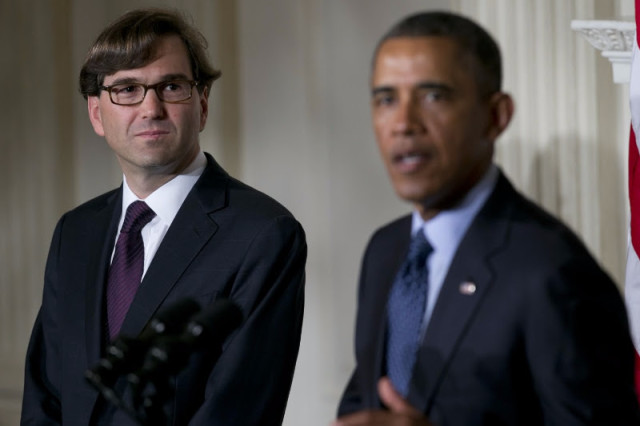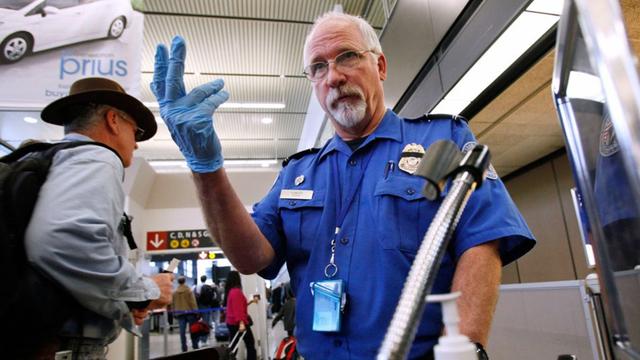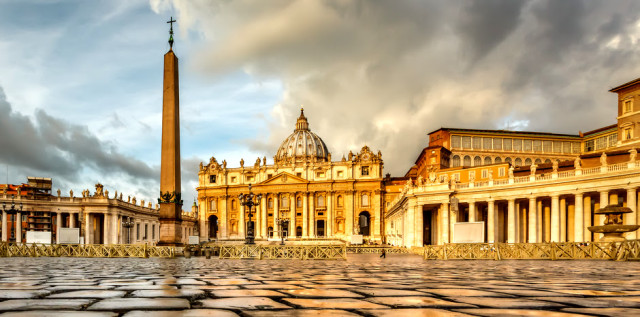Corporations are often accused of despoiling the environment in their quest for profit. Free enterprise is supposedly incompatible with environmental preservation, so that government regulation is required.
Such thinking is the basis for current proposals to expand environmental regulation greatly. So many new controls have been proposed and enacted that the late economic journalist Warren Brookes once forecast that the U.S. Environmental Protection Agency (EPA) could well become “the most powerful government agency on earth, involved in massive levels of economic, social, scientific, and political spending and interference.
But if the profit motive is the primary cause of pollution, one would not expect to find much pollution in socialist countries, such as the former Soviet Union, China, and in the former Communist countries of Eastern and Central Europe. That is, in theory. In reality exactly the opposite is true: The socialist world suffers from the worst pollution on earth. Could it be that free enterprise is not so incompatible with environmental protection after all?
I. Socialist Pollution
The Soviet Union
In the Soviet Union there was a vast body of environmental law and regulation that purportedly protected the public interest, but these constraints have had no perceivable benefit. The Soviet Union, like all socialist countries, suffered from a massive “tragedy of the commons,” to borrow the term used by biologist Garrett Hardin in his classic 1968 article. Where property is communally or governmentally owned and treated as a free resource, resources will inevitably be overused with little regard for future consequences.
The Soviet government’s imperatives for economic growth, combined with communal ownership of virtually all property and resources, caused tremendous environmental damage. According to economist Marshall Goldman, who studied and traveled extensively in the Soviet Union, “The attitude that nature is there to be exploited by man is the very essence of the Soviet production ethic.”
A typical example of the environmental damage caused by the Soviet economic system is the exploitation of the Black Sea. To comply with five-year plans for housing and building construction, gravel, sand, and trees around the beaches were used for decades as construction materials. Because there is no private property, “no value is attached to the gravel along the seashore. Since, in effect, it is free, the contractors haul it away. This practice caused massive beach erosion which reduced the Black Sea coast by 50 percent between 1920 and 1960. Eventually, hotels, hospitals, and of all things, a military sanitarium collapsed into the sea as the shoreline gave way. Frequent landslides–as many as 300 per year–have been reported.
Water pollution is catastrophic. Effluent from a chemical plant killed almost all the fish in the Oka River in 1965, and similar fish kills have occurred in the Volga, Ob, Yenesei, Ural, and Northern Dvina rivers. Most Russian factories discharge their waste without cleaning it at all. Mines, oil wells, and ships freely dump waste and ballast into any available body of water, since it is all one big (and tragic) “commons.”
Only six of the 20 main cities in Moldavia had a sewer system by the late 1960s, and only two of those cities made any effort to treat the sewage. Conditions are far more primitive in the countryside.
The Aral and Caspian seas have been gradually disappearing as large quantities of their water have been diverted for irrigation. And since untreated sewage flows into feeder rivers, they are also heavily polluted.
Some Soviet authorities expressed fears that by the turn of the century the Aral Sea will be nothing but a salt marsh. One paper reported that because of the rising salt content of the Aral the remaining fish will rapidly disappear. It was recently revealed that the Aral Sea has shrunk by about a third. Its shore line “is arid desert and the wind blows dry deposits of salt thousands of miles away. The infant mortality rate [in that region] is four to five times the national average.”
The declining water level in the Caspian Sea has been catastrophic for its fish population as spawning areas have turned into dry land. The sturgeon population has been so decimated that the Soviets have experimented with producing artificial caviar. Hundreds of factories and refineries along the Caspian Sea dump untreated waste into the sea, and major cities routinely dump raw sewage. It has been estimated that one-half of all the discharged effluent is carried in the Volga River, which flows into the Caspian Sea. The concentration of oil in the Volga is so great that steamboats are equipped with signs forbidding passengers to toss cigarettes overboard. As might be expected, fish kills along the Volga are a “common calamity.”
Lake Baikal, which is believed to be the oldest freshwater lake in the world, is also one of the largest and deepest. It is five times as deep as Lake Superior and contains twice the volume of water. According to Marshall Goldman, it was also “the best known example of the misuse of water resources in the USSR.”
Factories and pulp mills have been dumping hundreds of millions of gallons of effluent into Lake Baikal each year for decades. As a result, animal life in the lake has been cut by more than 50 percent over the past half century. Untreated sewage is dumped into virtually all tributaries to the lake.
Islands of alkaline sewage have been observed floating on the lake, including one that was 18 miles long and three miles wide. These “islands” have polluted the air around the lake as well as the water in it. Thousands of acres of forest surrounding the lake have been denuded, causing such erosion that dust storms have been reported. So much forest land in the Lake Baikal region has been destroyed that some observers reported shifting sands that link up with the Gobi Desert; there are fears that the desert may sweep into Siberia and destroy the lake.
In other regions the fact that no compensation has to be paid for land that is flooded by water projects has made it easy for government engineers to submerge large areas of land. “As much land has been lost through flooding and salination as has been added through irrigation and drainage in the Soviet Union.”
These examples of environment degradation in the Soviet Union are not meant to be exhaustive but to illustrate the phenomenon of Communist pollution. As Goldman has observed, the great pollution problems in Russia stem from the fact that the government determined that economic growth was to be pursued at any cost. “Government officials in the USSR generally have a greater willingness to sacrifice their environment than government officials in a society with private enterprise where there is a degree of public accountability. There is virtually a political as well as an economic imperative to devour idle resources in the USSR.”
China
In China, as in Russia, putting the government in charge of resource allocation has not had desirable environmental consequences. Information on the state of China’s environment is not encouraging.
According to the Worldwatch Institute, more than 90 percent of the trees in the pine forests in China’s Sichuan province have died because of air pollution. In Chungking, the biggest city in southwest China, a 4, 500-acre forest has been reduced by half. Acid rain has reportedly caused massive crop losses.
There also have been reports of waterworks and landfill projects severely hampering fish migration. Fish breeding was so seriously neglected that fish has largely vanished from the national diet. Depletion of government-owned forests has turned them into deserts, and millions of acres of grazing and farm land in the northern Chinese plains were made alkaline and unproductive during the “Great Leap Forward.”
Central and Eastern Europe
With Communism’s collapse, word has begun to seep out about Eastern Europe’s environmental disasters. According to the United Nations Global Environment Monitoring Program, “pollution in that region is among the worst on the Earth’s surface.” Jeffrey Leonard of the World Wildlife Fund concluded that “pollution was part and parcel of the system that molested the people [of Eastern Europe] in their daily lives.” Evidence is mounting of “an environmental nightmare,” the legacy of “decades of industrial development with little or no environmental control.”
Poland
According to the Polish Academy of Sciences, “a third of the nation’s 38 million people live in areas of ecological disaster.” In the heavily industrialized Katowice region of Poland, the people suffer 15 percent more circulatory disease, 30 percent more tumors, and 47 percent more respiratory disease than other Poles. Physicians and scientists believe pollution is a major contributor to these health problems.
Acid rain has so corroded railroad tracks that trains are not allowed to exceed 24 miles an hour. The air is so polluted in Katowice that there are underground “clinics” in uranium mines where the chronically ill can go to breathe clean air.
Continuous pumping of water from coal mines has caused so much land to subside that over 300,000 apartments were destroyed as buildings collapsed. The mine sludge has been pumped into rivers and streams along with untreated sewage which has made 95 percent of the water unfit for human consumption. More than 65 percent of the nation’s water is even unfit for industrial use because it is so toxic that it would destroy heavy metals used by industry. In Cracow, Poland’s ancient capital, acid rain “dissolved so much of the gold roof of the 16th century Sigismund Chapel that it recently hd to be replaced.”
Industrial dust rains down on towns, depositing cadmium, lead, zinc, and iron. The dust is so heavy that huge trucks drive through city streets daily spraying water to reduce it. By some accounts eight tons of dust fall on each square mile in and around Cracow each year. The mayor of Cracow recently stated that the Vistula River — the largest river in Poland — is “nothing but a sewage canal.” The river has mercury levels that are three times what researchers say is safe, while lead levels are 25 times higher than deemed safe.
Half of Poland’s cities, including Warsaw, don’t even treat their wastes, and 41 animal species have reportedly become extinct in Poland in recent years. While health statistics are spotty — they were not a priority of the Communist government–available data are alarming. A recent study of the Katowice region found that 21 percent of the children up to 4 years old are sick almost constantly, while 41 percent of the children under 6 have serious health problems.
Life expectancy for men is lower than it was 20 years ago. In Upper Silesia, which is considered one of the most heavily industrialized regions in the world, circulatory disease levels are 15 percent higher, respiratory disease is 47 percent higher, and there has been “an appalling increase in the number of retarded children,” according to the Polish Academy of Sciences. Although pollution cannot be blamed for all these health problems, physicians and scientists attach much of the blame to this source.
Czechoslovakia
In a speech given on New Year’s Day of 1990, Czechoslovakian President Vaclav Havel said, “We have laid waste to our soil and the rivers and the forests…and we have the worst environment in the whole of Europe today.” He was not exaggerating, although the competition for the title of “worst environment” is clearly fierce. Sulfur dioxide concentrations in Czechoslovakia are eight times higher than in the United Sates, and “half the forests are dead or dying.”
Because of the overuse of fertilizers, farmland in some areas of Czechoslovakia is toxic to more than one foot in depth. In Bohemia, in northwestern Czechoslovakia, hills stand bare because their vegetation has died in air so foul it can be tasted. One report describes the Czech countryside as a place where “barren plateaus stretch for miles, studded with the stumps and skeletons of pine trees. Under the snow lie thousands of acres of poisoned ground, where for centuries thick forests had grown.” There is a stretch of over 350 miles where more than 300,000 acres of forest have disappeared and the remaining trees are dying. A thick, brown haze hangs over much of northern Czechoslovakia for about eight months of the year. Sometimes it takes on the sting of tear gas, according to local officials. There are environmental laws, but they aren’t enforced. Sulfur in the air has been reported at 20 times the permissible level. Soil in some regions is so acidic that aluminum trapped in the clay is released. Scientists discovered that the aluminum has poisoned groundwater, killing tree and plant roots and filtering into the drinking water.
Severe erosion in the decimated forests has caused spring floods in which all the melted snow cascades down mountainsides in a few weeks, causing further erosion and leading to water shortages in the summer.
In its search for coal, the Communist government has used bulldozers on such a massive scale that they have “turned towns, farms and woodlands into coarse brown deserts and gaping hollows. Because open-pit mining is cheaper than underground mining, and has been practiced extensively, in some areas of Czechoslovakia “you have total devastation of the land.”
East Germany
The new German government has claimed that nearly 40 percent of the East German populace suffers ill effects from pollutants in the air. In Leipzig, half the children are treated each year for illnesses believed to be associated with air pollution. Eighty percent of eastern Germany’s surface waters are classified as unsuitable for fishing, sports, or drinking, and one out of three lakes has been declared biologically dead because of decades of untreated dumping of chemical waste.
Much of the East German landscape has been devastated. Fifteen to 20 percent of its forests are dead, and another 40 percent are said to be dying. Between 1960 and 1980 at least 70 villages were destroyed and their inhabitants uprooted by the government, which wanted to mine high-sulfur brown coal. The countryside is now “pitted with moon-like craters” and “laced with the remains of what were once spruce and pine trees, nestled amid clouds of rancid smog.” The air in some cities is so polluted that residents use their car headlights during the day, and visitors have been known to vomit from breathing the air.
Nearly identical problems exist in Bulgaria, Hungary, Romania, and Yugoslavia.
Visiting scientists have concluded that pollution in Central and Eastern Europe “is more dangerous and widespread than anything they have seen in the Western industrial nations.”
II. United States: Public Sector Pollution
The last refuge of those who advocate socialistic solutions to environmental pollution is the claim that it is the lack of democratic processes that prevents the Communist nations from truly serving the public interest. If this theory is correct, then the public sector of an established democracy such as the United States should be one of the best examples of environmental responsibility. But U.S. government agencies are among the most cavalier when it comes to environmental stewardship.
There is much evidence to dispute the theory that only private businesses pollute. In the United States, we need look no further than our own government agencies. These public sector institutions, such as the Department of Defense (DOD), are among the worst offenders. DOD now generates more than 400,000 tons of hazardous waste a year — more than is produced by the five largest chemical companies combined. To make matters worse, the Environmental Protection Agency lacks the enforcement power over the public sector that it possesses over the private sector.
The lax situation uncovered by the General Accounting Office (GAO) at Tinker Air Force Base in Oklahoma is typical of the way in which many Federal agencies respond to the EPA’s directives. “Although DOD policy calls for the military services to … implement EPA’s hazardous waste management regulations, we found that Tinker has been selling…waste oil, fuels, and solvents rather than recycling,” reported the GAO.
One of the world’s most poisonous spots lies about 10 miles northeast of Denver in the Army’s Rocky Mountain Arsenal. Nerve gas, mustard shells, the anti-crop spray TX, and incendiary devices have been dumped into pits there over the past 40 years. Dealing with only one “basin” of this dump cost $40 million. Six hundred thousand cubic yards of contaminated soil and sludge had to be scraped and entombed in a 16-acre, double-lined waste pile.
There are plenty of other examples of Defense Department facilities that need major cleanup. In fact, total costs of along-term Pentagon cleanup are hard to get a handle on. Some officials have conceded that the price tag could eventually exceed $20 billion.
Government-owned power plants are another example of public-sector pollution. These plants are a large source of sulfur dioxide emissions. The federal government’s Tennessee Valley Authority operates 59 coal-fired power plants in the Southeast, where it has had major legal confrontations with state governments who want the Federal agency to comply with state governments who want the Federal agency to comply with state environmental regulations. The TVA has fought the state governments for years over compliance with their clean air standards. It won a major Supreme Court victory when the Court ruled that, as a federal government enterprise, it could be exempt from environmental regulations with which private sector and local government power plants must comply.
Federal agricultural policy also has been a large source of pollution, in the past encouraging over utilization of land subject to erosion. Powerful farm lobbies have protected “non-point” sources of pollution from the heavy hand of regulation places on other private industries.
III. Policy Implications
These examples of environmental degradation throughout the world suggest some valuable lessons. First, it is not free enterprise per se that causes environmental harm; if so, the socialist world would be environmentally pristine.
The heart of the problem lies with the failure of our legal institutions, not the free enterprise system. Specifically, American laws were weakened more than a century ago by Progressive Era courts that believed economic progress was in the public interest and should therefore supersede individual rights.
The English common law tradition of the protection of private property rights — including the right to be free from pollution — was slowly overturned. In other words, many environmental problems are not caused by “market failure” but by government’s failure to enforce property rights. It is a travesty of justice when downstream residents, for example, cannot hold an upstream polluter responsible for damaging their properties. The common law tradition must be revived if we are to enjoy a healthy market economy and a cleaner environment. Potential polluters must know in advance that they will be held responsible for their actions.
The second lesson is that the plundering of the environment in the socialist world is a grand example of the tragedy of the commons. Under communal property ownership, where no one owns or is responsible for a natural resource, the inclination is for each individual to abuse or deplete the resource before someone else does. Common examples of this “tragedy” are how people litter public streets and parks much more than their own yards; private housing is much better maintained than public lands but maintain lush pastures on their own property; the national forests are carelessly over-logged, but private forests are carefully managed and reforested by lumber companies with “super trees”; and game fish are habitually overfished in public waterways but thrive in private lakes and streams. The tragedy of the commons is a lesson for those who believe that further nationalization and governmental control of natural resources is a solution to our environmental problems.
These two pillars of free enterprise — sound liability laws that hold people responsible for actions and the enforcement of private property rights — are important stepping stones to environmental protection.
EDITORS NOTE: The featured image is courtesy of FEE and Shutterstock.





























